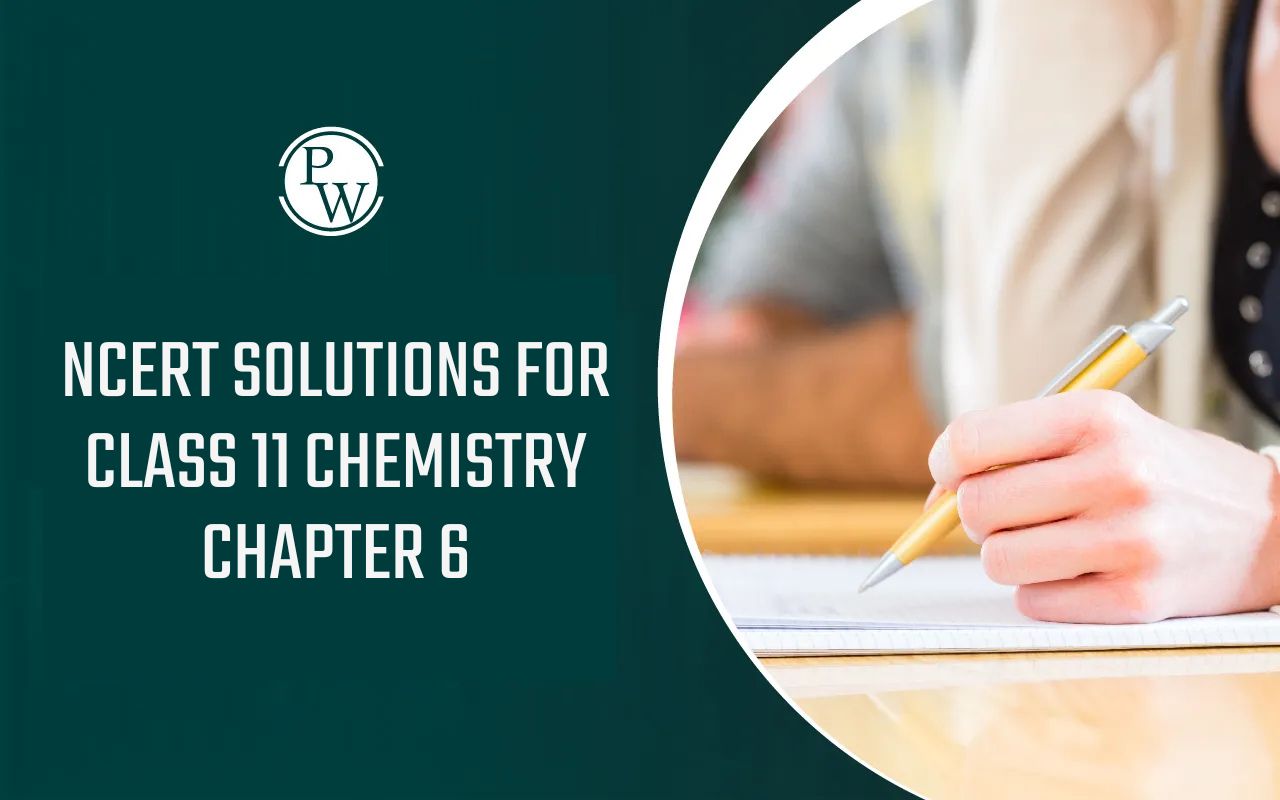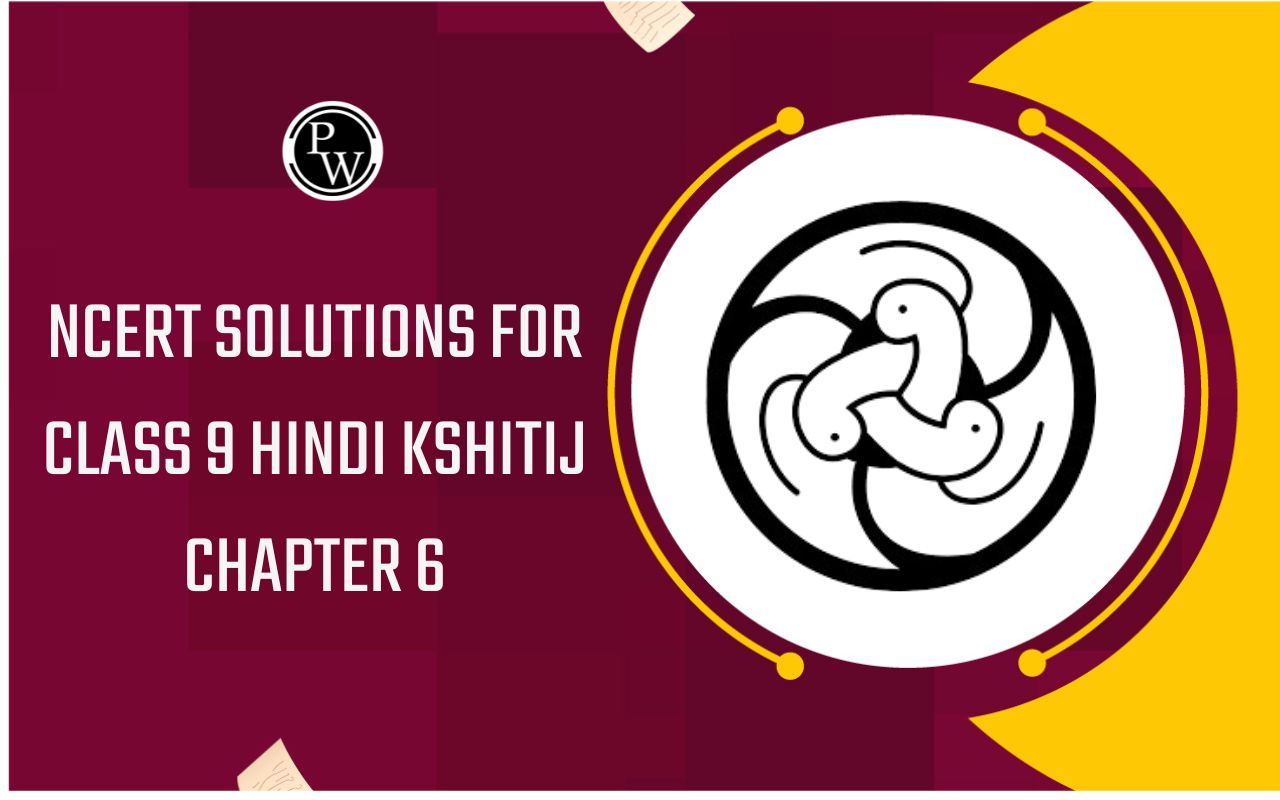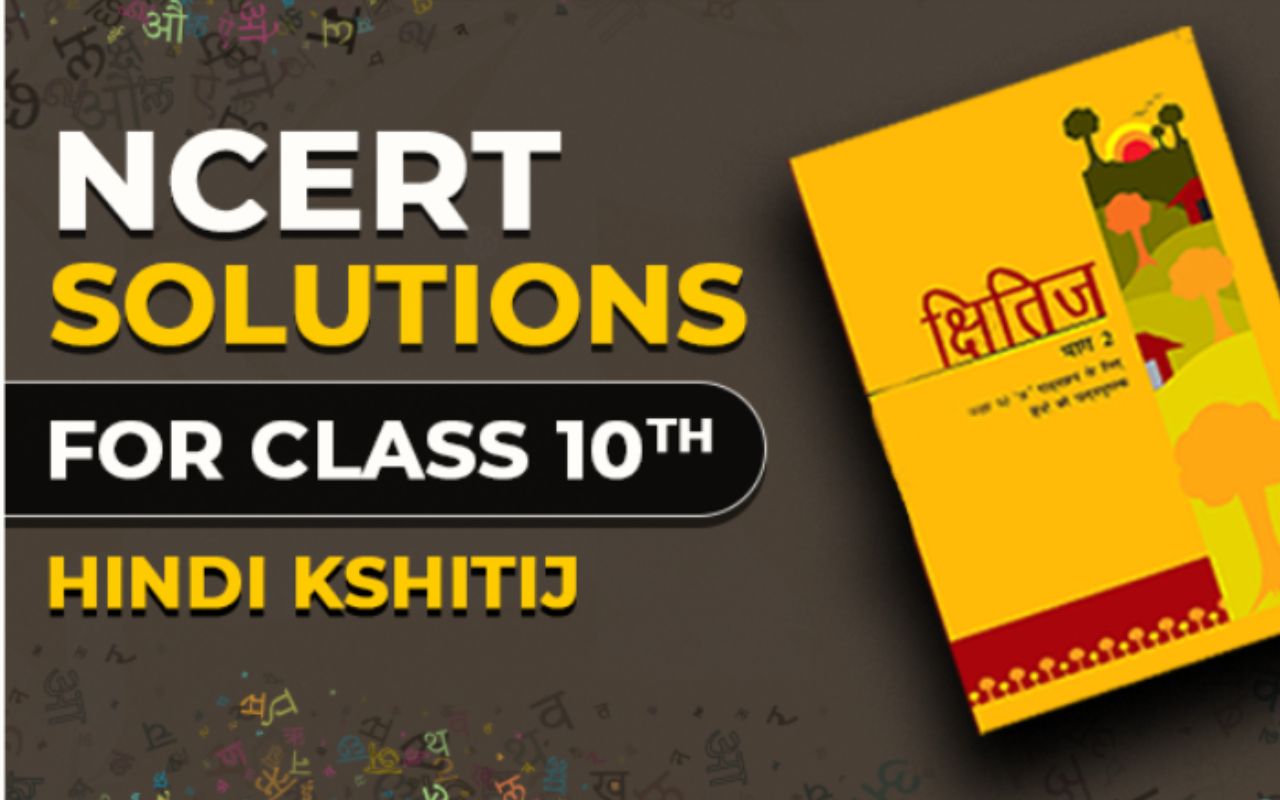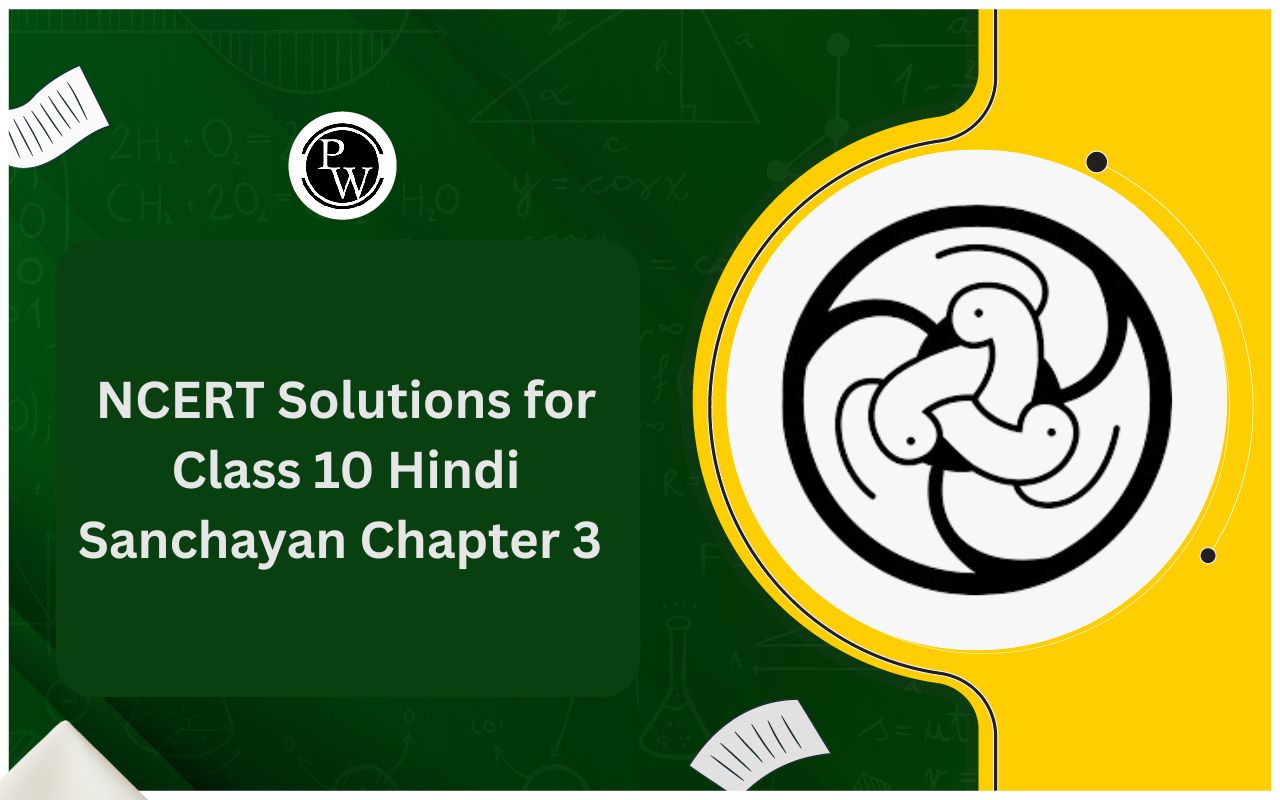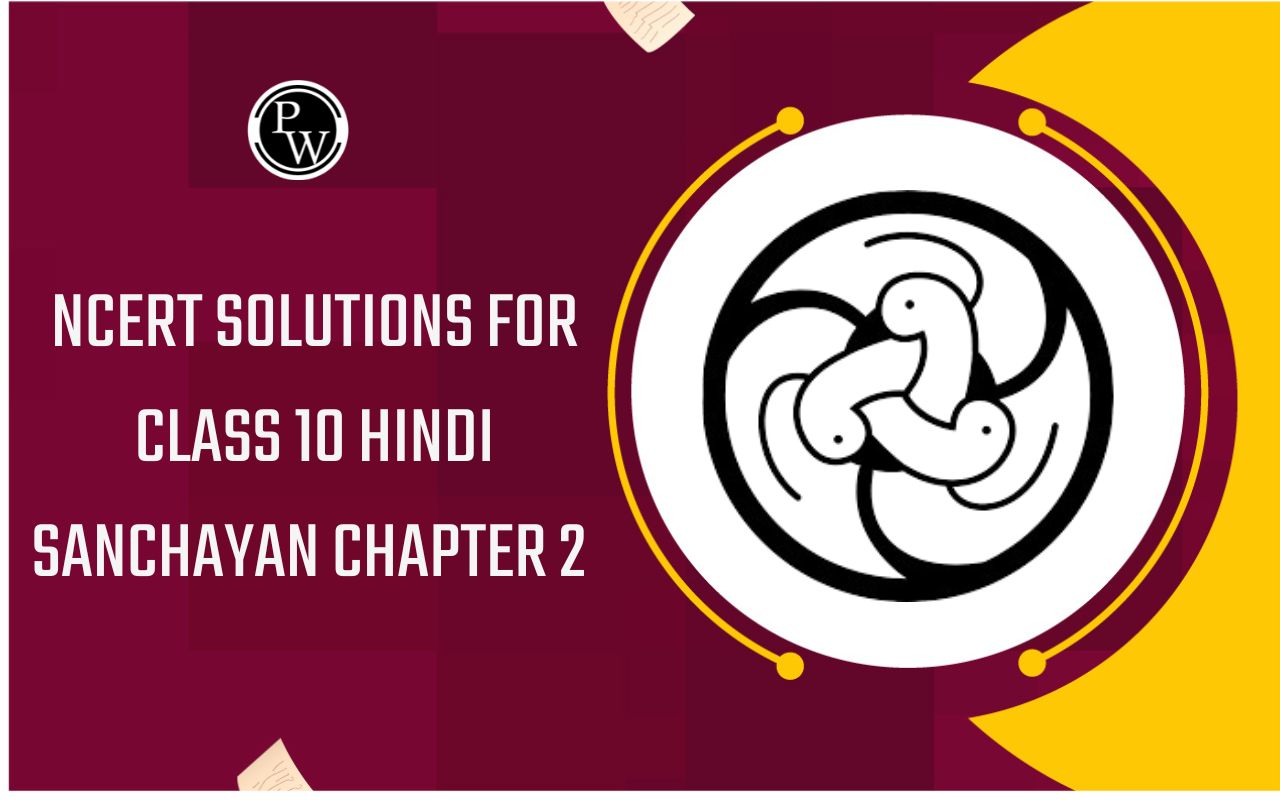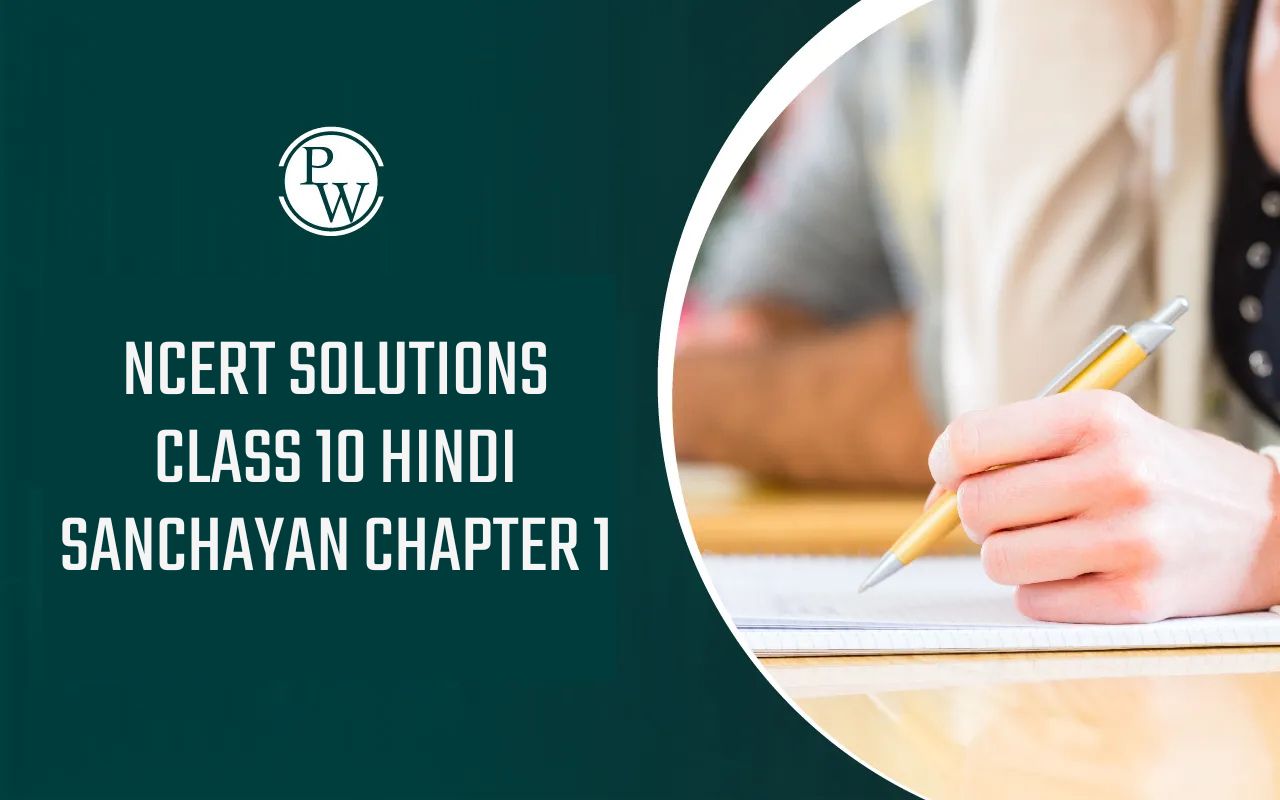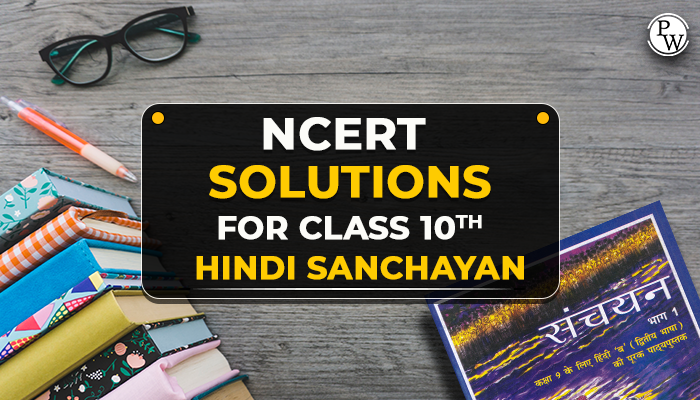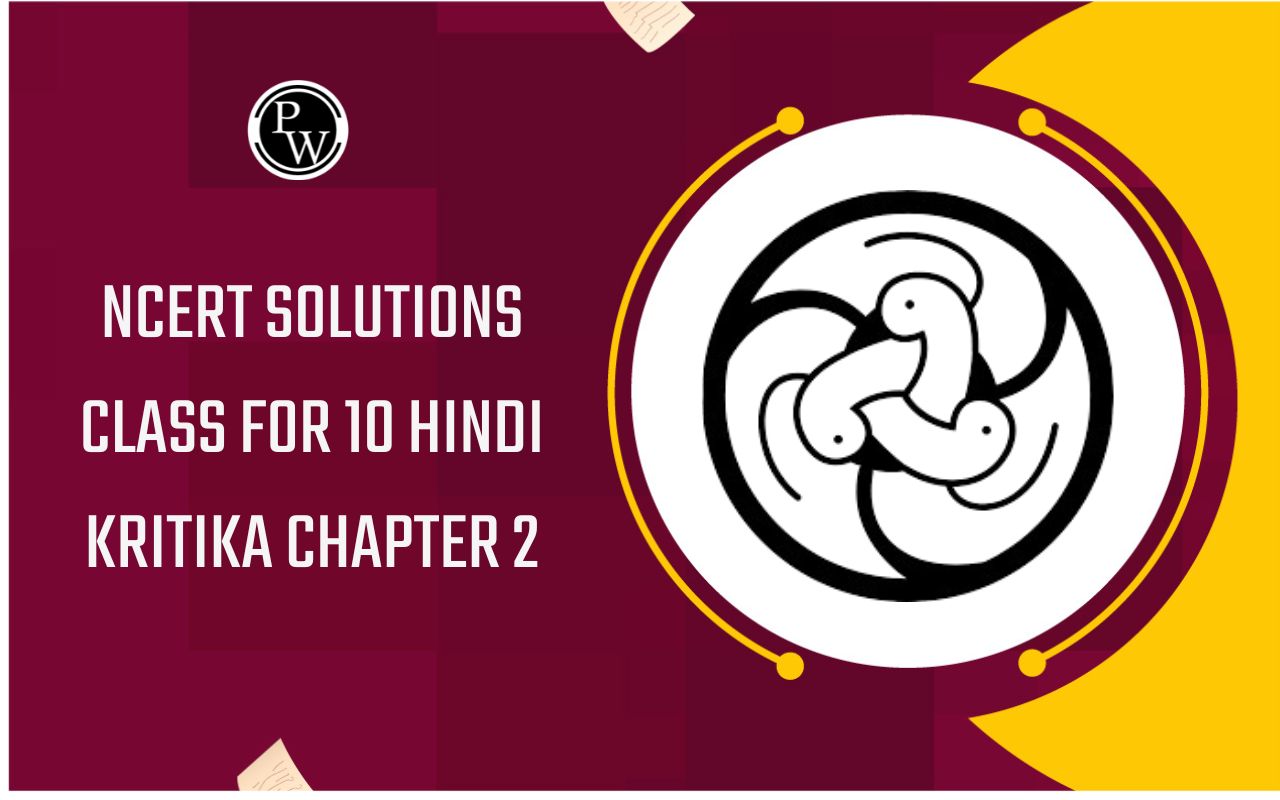
Protozoa
Classification of Animals Non Chordates of Class 11
Goldfuss (1817) coined the term Protozoa.
Number of species : about 50,000.
Study of protozoa : Protozoology.
General Characteristics
Protozoans are small, generally microscopic organisms where single cell performs all the vital activities hence, also called as acellular organisms.
Exhibit a great variety of shape.
Cytoplasms differentiated into outer ectoplasm and inner endoplasm.
Generally uninucleate but all ciliates and many amoeboid forms are multinucleate. Nucleus is vesicular and massive.
Locomotory organs are pseudopodia in sarcodina, flagella in mastigophora, cilia in ciliata and absent in Sporozoa (parasitic forms).
Nutrition may be holophytic (plant-like), holozoic (animal-like), saprozoic or parasitic.
Contractile vacuole is found in almost all freshwater protozoans for maintenance of osmotic concentration of cell body. It also helps in excretion.
Reproduction is asexual or sexual. Most flagellates, rhizopods and ciliates show asexual reproduction by binary or multiple fission, budding or sporulation. Some ciliates eg-Paramecium reproduce by sexual
means i.e. conjugation. In sporozoa, some stages of life cycle show formation of morphologically distinct gametes.
Cyst formation during unfavourable conditions commonly occurs among the freshwater and parasitic protozoans.
Life cycle often exhibits alternation of generation ie - includes both asexual and sexual phase.
Protozoans show mainly 2 modes of life, free-living inhabiting fresh and salt water and damp places, parasitic living as ectoparasites or endoparasites on other animals and plants.
Classification
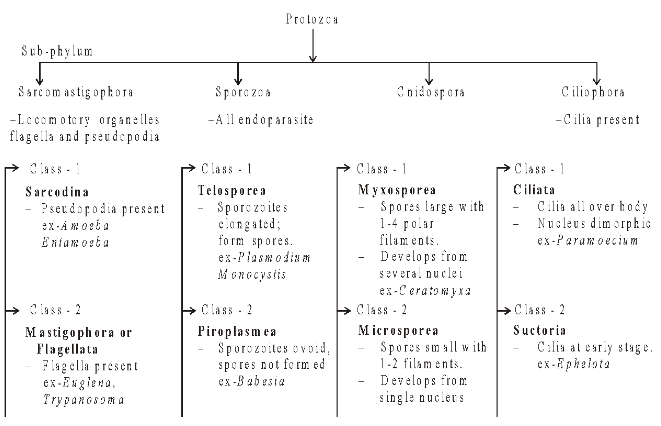
Salient Features of some important classes of Protozoa
Class I : Mastigophora
One to many flagella, acts as locomotory and food capturing organs.
Reproduction asexual by longitudinal binary fission.
e.g., Euglena, Noctiluca, Trypanosoma (causes sleeping sickness), Leishmania donovani (causes kala azar), Giardia (causes dysentry).
Class II : Rhizopoda or Sarcodina
Body naked without definite pellicle or provided with shells.
Pseudopodia are locomotory and food-capturing organs.
Asexual reproduction by binary or multiple fission.
e.g., Amoeba, Entamoeba (causes dysentery), Polystomella, Arcella.
Class III : Sporozoa
Adult sporozoans donot possess external organs of locomotion.
Reproduction both sexual and asexual.
Exclusively parasitic forms
Ex : Plasmodium (causes malaria), Monocystis (Parasite in seminal vesicles of earthworm), Eimeria, Sarcocystis.
Class IV : Ciliata
Body has firm pellicle.
Locomotory and food capturing organs are cilia.
Usually two kinds of nuclei : larger macronucleus and smaller micronucleus.
Asexual reproduction by binary fission and sexual reproduction by conjugation.
Ex. Paramecium, Opalina, Nycotherus, Vorticella.
Class V : Suctoria
Locomotory organs absent in adult stages.
Single oval, elongated macronucleus and one to several micronuclei.
Ex : Ephelota, Podophrya, Acineta

